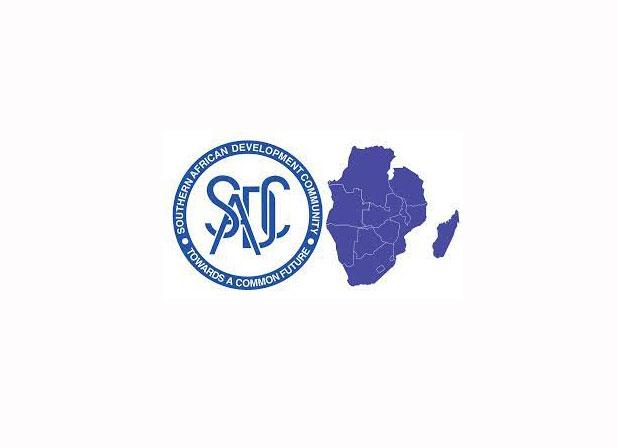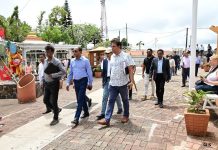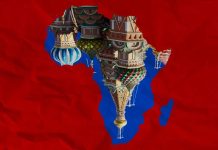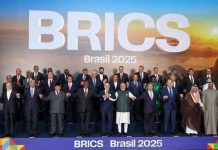Africa-Press – Mauritius. The need to increase regional and international cooperation to reduce vulnerability to climate change and ensure resilience was highlighted by the Southern African Development Community (SADC) Senior Programme Officer, Environment and Climate Change, Ms. Sibongile Mavimbela. She was speaking at the end of the High-Level Water Investment Conference held in Zanzibar from 8-11 March 2022.
The conference was co-hosted by the President of Zanzibar and Chairman of the Revolutionary Council His Excellency, Dr Hussein Ali Mwinyi, and the Chair of Global Water Partnership Southern Africa and Africa Coordination (GWPSA-ACU) and former President of the United Republic of Tanzania, Dr. Jakaya Kikwete.
It was convened by GWPSA-ACU in partnership with the Ministry of Water, Energy and Minerals of Zanzibar and in collaboration with the African Union Development Agency (AUDA-NEPAD), African Ministers Council on Water, African Development Bank (AfDB), the Organisation for Economic Co-operation and Development (OECD), United Nations International Children’s Educational Fund (UNICEF), United Nations Development Programme (UNDP), World Bank, and Development Bank of Southern Africa.
The conference was preceded by a three-day SADC Climate Finance Training Hybrid Workshop attended by 14 out of 16 SADC Member States, physically as well as over 20 online participants.
The workshop was organised as part of the SADC Global Climate Change Alliance Plus (GCCA+) programme which seeks to increase the capabilities of SADC Member States to mitigate and adapt to the effects of climate change, in support of the Regional Indicative Strategic Development Plan (RISDP 2020-2030), Africa Agenda 2063 and Sustainable Development Goals (SDGs); and to have their voice better heard in the international climate change negotiations.
The objectives of the workshop were to introduce the main global climate financing mechanisms, and the processes and requirements for accessing them; introduce the Green Climate Fund (GCF) funding opportunities; share experiences in preparing GCF Proposals; identify climate finance opportunities that are available for SADC Member States; and discuss areas of support that are required by the Member States to access climate finance.
Ms. Mavimbela stated that water is an important driver of socio-economic development in the SADC Region as indicated in the SADC Water Policy and Strategy (2006). Optimal water management supports the development objectives on poverty reduction, food security, energy security and industrial development, she.
She further pointed out that various challenges in integrated water resources management exist in the Region, including highly variable rainfall and uneven water distribution, high water demands resulting in spatial and temporary scarcities, and challenges related to national and regional water governance and financing of water management.
The SADC Region’s high vulnerability to the impacts of climate change is due to its economies’ dependency on natural resources and agriculture, sectors that are acutely affected by climate fluctuations, she stated adding that climate change poses a number of risks to the SADC Region and largely to the African continent with increased frequency of floods, cyclones, and droughts.
Ms. Mavimbela emphasised that SADC’s strategic partnerships with GWPSA from a water and climate change perspective is growing from strength to strength, in accelerating support in both sectors to the 16 Member States.
According to Dr Kikwete, the scorecard will rally political leadership and commitment to transform the investment outlook for water and sanitation towards the realisation of Sustainable Development Goal 6 by supporting countries to track progress, identify bottlenecks, and take action.
More than 300 delegates from across the SADC Region and the rest of Africa attended the conference and called for the transformation of the water and sanitation investment in Zanzibar to narrow the investment gap in the sector as part of the post COVID-19 economy recovery.
The delegates called upon African countries to implement the Africa Water Investment Plan-Programme for Infrastructure Development in Africa (AIP-PIDA) Water Investment Scorecard through development of response strategies and investment programmes aimed at ensuring adaptation to climate change, climate resilient Water Sanitation and Hygiene (WASH), combating pandemics, and ensuring food security.
For More News And Analysis About Mauritius Follow Africa-Press







